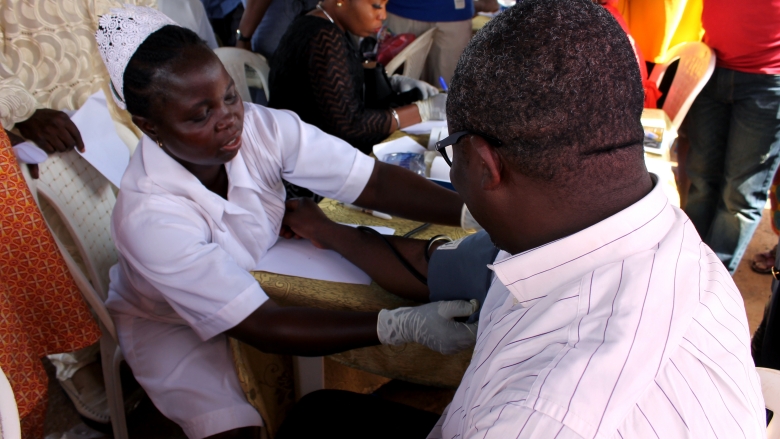The JLN is a country-led, demand-driven network set up with catalytic funding from the Rockefeller Foundation. The JLN continues to receive funding and technical support from a consortium of partners including the Bill & Melinda Gates Foundation, USAID, GIZ, and the World Bank.
The JLN is a major platform for the World Bank’s Health, Nutrition and Population Global Practice to help countries resolve challenges to achieving UHC.
“Joint learning is so important in accelerating progress towards UHC,” says Tim Evans, Senior Director of Health, Nutrition and Population at the World Bank. "I’m delighted with the country leadership that defines the JLN.”
This joint learning focuses on expanding health coverage to reach people, especially the poor and informal sector; increase access to essential health services, especially primary health care services; improve the quality of care and patient safety; and promote financial sustainability. Ultimately, the JLN aims to contribute to extending health coverage to more than 3 billion people and ensure financial protection.
For Ghana, the JLN has provided a platform to both learn from and teach other countries. As a result of the JLN, Ghana changed how it was enrolling people in health insurance membership.
“It’s brought different stakeholder groups together in the health sector and it has helped us work together to achieve our objectives,” says Lydia Dsane-Selby, Director of Claims Management at the National Health Insurance Authority of Ghana. “We’re working more together, and we’re also learning from other countries’ experiences, mistakes and lessons learned.”
Through the JLN, Ghana is showing other countries how best to reach informal sector workers through health insurance schemes. Officials also have welcomed colleagues on visits from Kenya, Mali and Nigeria, to help them implement similar efforts in their countries. And Ghana is looking to lessons from Thailand, Malaysia and the Philippines to improve the country’s tracking of disease patterns.
The JLN has helped another West African country, Nigeria, grow its national health insurance scheme from infancy to the system the country continues to refine today. Through the JLN, Nigeria has formed subnational groups in the country to focus on peer-to-peer learning on UHC.
“The JLN helps countries [like Nigeria] galvanize their ideas,” says Francis Nwachukwu, a Senior Health Economist and Health of Healthcare Financing, Equity and Investment in Nigeria.
Nigeria is sharing with other countries how it is working with the private sector and through mobile technology, among other efforts, to expand health care to the country’s poorest people.
A major focus of the JLN is developing resources, including guides, tools, country briefs and case studies, to help bridge the gap between theory and practice in working toward UHC. To date, countries participating in the JLN have developed 61 resources that contribute to the global public good.
Mexico is learning from countries like Kosovo and Ghana on how best to pay for services and monitor providers who game the health system. With the knowledge it needs to inspire political change, Mexico is implementing Kosovo- and Ghana-inspired reforms.
“UHC has been on the political agenda—but we still have a way to go,” says Adolfo Martinez Valle, Deputy Director General of the Economic Analysis Unit at Mexico’s Ministry of Health. “The JLN will help us convince politicians that it can be done in countries that have much more lower per capita than we do.”
In July 2016, 150 JLN stakeholders from 27 countries across the globe came together for a JLN Global Meeting in Putrajaya, Malaysia. The global meeting served as a stocktaking as well as a forward-looking event that identified key opportunities for collaboration and strengthening the joint learning approach. The meeting highlighted the network’s focus on strengthening primary health care systems, extending health access to poor and hard-to-reach populations, building sustainable health financing and payment systems, and enhancing the quality of health services provided, and supporting these with enhanced information system frameworks. The meeting was also a recognition of JLN’s growing size, significance and visibility, and served to energize and inspire the network in its next phase ahead, with UHC now being a sustainable development goal that was firmly on the radar all over the world.
It also helped countries continue to build relationships with one another, and ultimately, deliver better health to their people, says Cheryl Cashin, a Senior Program Director at the Results for Development Institute: “The JLN is a safe home for practitioners and experts from all over countries to speak honestly about political challenges, and ultimately make incremental steps to UHC.”


